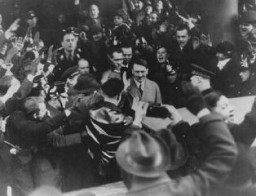You searched for: 澳门太阳城注册【手动输入∶___bet163.net___】最新地址请收藏,澳门太阳城注册送14,澳门太阳城注册送18,澳门太阳城注册送27,澳门太阳城注册送28,澳门太阳城注册送38,澳门太阳城注册送88,澳门太阳城注册送118。
<< Previous | Displaying results 626-650 of 748 for "澳门太阳城注册【手动输入∶___bet163.net___】最新地址请收藏,澳门太阳城注册送14,澳门太阳城注册送18,澳门太阳城注册送27,澳门太阳城注册送28,澳门太阳城注册送38,澳门太阳城注册送88,澳门太阳城注册送118。" | Next >>
-
Otto-Karl Gruenbaum
ID CardBorn to a Jewish father and a Catholic mother, Otto grew up in a city well known for its musical tradition. The younger of two children, Otto began studying the piano at age 10. After entering the Vienna Conservatory of Music, he gave his first concert at age 14. Encouraged by Maestro Bruno Walter, he hoped to become a conductor and concert pianist. 1933-39: After Germany annexed Austria in March 1938, Otto was kicked out of the Vienna Conservatory. One night, two men ordered him to go with them to a…
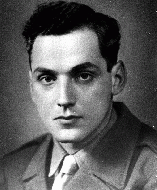
-
David Morgensztern
ID CardThe second of four children, David, or Duvid as he was called by his family, was born to Jewish parents living 35 miles east of Warsaw in the small predominantly Jewish town of Kaluszyn. David's mother and grandmother ran a newspaper kiosk in town, and his father worked as a clerk in the town hall. David attended public elementary school. 1933-39: War has broken out between Poland and Germany. Many people are afraid of what might happen if the Germans occupy Poland and have decided to flee to the Soviet…
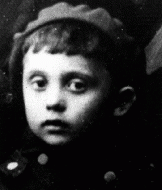
-
Yakov Biber
ID CardYakov was the youngest of four children born to a poor religious Jewish family in the village of Matsiov in Ukraine. Six years after Yakov was born, Matsiov was ceded to Poland. When Yakov was 14 his mother died and he had to quit school in order to work. Yakov was a Zionist and hoped to settle in Palestine [Yishuv]. 1933-39: In the Young Pioneers, a Zionist group, Yakov directed the dramatic productions the group put on to raise money for the Zionist cause. It was in the Young Pioneers that he met Chava,…
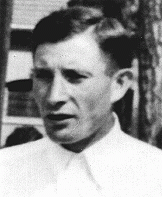
-
Olga Gelb
ID CardOlga was born to religious Jewish parents in a small city in Ruthenia. The country's easternmost province, Ruthenia had been ruled by Hungary until 1918. One of eight children, Olga grew up in a prosperous home in which both Yiddish and Hungarian were spoken. Her father worked as a wholesale leather merchant. Olga attended both public school and a Hebrew girls' school. 1933-39: Under Czech rule Olga could be religious and not face discrimination at school. Her parents were pleased when Ruthenia became a…
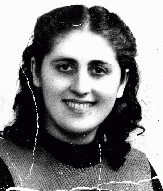
-
Herschel Gerszonowicz
ID CardThe fourth of eight children, Herschel was born to Jewish parents in south central Poland. His father was a machinist and locksmith. Herschel belonged to the Zionist youth organization, Ha Shomer ha-Tsa'ir, and played soccer for the Jewish team. When he was 14 years old, he left school to become apprenticed to his stepsister's father who was a tailor. 1933-39: Herschel was working as a tailor in Miechow when, on September 1, 1939, the German army invaded Poland. His parents decided that he and his…
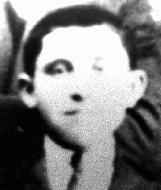
-
Susanne Ledermann
ID CardSusanne was the younger of two daughters born to Jewish parents in the German capital of Berlin. Her father was a successful lawyer. Known affectionately as Sanne, Susanne liked to play with her sister on the veranda of her home and enjoyed visiting the Berlin Zoo and park with her family. 1933-39: After the Nazis came to power in January 1933, it became illegal for Jewish lawyers to have non-Jewish clients. When Susanne was 4, her father's law practice closed down and the Ledermanns moved to the…
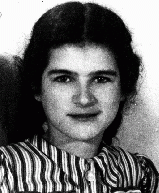
-
Max Diamant (now Josef Burzminski)
ID CardMax was born to a Jewish family in the Austrian capital of Vienna. When he was a small child his family moved to Przemysl, an urban center in southeastern Poland with a largely Jewish population. Max spent the remainder of his childhood there; his parents ran a small grocery and cafeteria to support their five children. 1933-39: The Germans reached Przemysl on September 14, 1939. It was a brilliant sunny day when planes suddenly appeared; Max's family thought the planes were their own until they began…
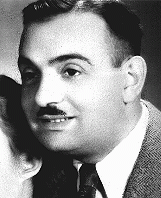
-
Margot Heumann
ID CardThe older of two girls, Margot was born to Jewish parents living in a village close to the Belgian border. The Heumanns lived above their general store. Across the street lived Margot's grandfather, who kept horses and cows in his large barn. When Margot was 4, her family moved to the city of Lippstadt. As a young girl, she learned to swim in the Lippe River, which flowed behind their garden. 1933-39: When Margot was 9, her family moved to the nearby city of Bielefeld, where she was enrolled in public…
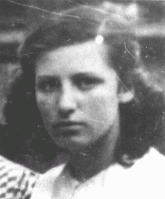
-
Sandor Alexander Bokshorn
ID CardSandor grew up in Budapest where his father was a furrier. Sandor attended a Jewish school until he was 14 and then entered a business school run by the chamber of commerce. After he graduated in 1929, he entered his father's business. Sandor then spent a year studying at the Sorbonne in Paris before entering university in Budapest to study economics. 1933-39: As a Jew, Sandor was in the minority at the university because anti-Jewish laws enacted in the 1920s had set quotas that limited Jewish applicants.…
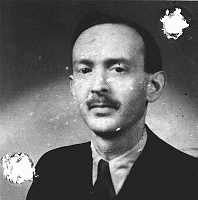
-
Frieda Altman Felman
ID CardFrieda grew up in a crowded one-room house in Sokolow Podlaski, a small manufacturing center in central Poland. Frieda's father had died when she was two years old, and her mother had then moved back to her hometown of Sokolow Podlaski, where she opened a poultry shop. The Altmans were a Yiddish-speaking, religious Jewish family, and Frieda was the youngest of four children. 1933-39: German troops entered Frieda's town on September 20, 1939. She was huddling, frightened, with family and friends in a…
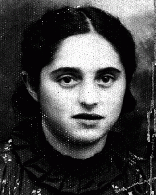
-
Robert Skutecky
ID CardRobert was the second of three children born to Jewish parents in the Moravian capital of Brno, where his father ran a shipping company. Between 1909 and 1920 Robert lived with his widowed grandmother, who resided nearby. He completed secondary school in 1922, and then attended an international trade school in Vienna. Robert earned a doctorate in law from Charles University in Prague in 1930. 1933-39: After apprenticing as a lawyer for five years, Robert finally opened his own practice in Brno in January…

-
Irena Elzbieta Wos
ID CardIrena was the second of four children born to religious Roman Catholic parents in Poland's capital of Warsaw. Irena's father owned a successful textile business. When Irena was 10, her family moved to a comfortable apartment near the Royal Castle and the Vistula River. In 1930 Irena entered a private grade school. 1933-39: At 14 Irena began secondary school. She was a good student and wanted to be a doctor. On September 1, 1939, the day she was supposed to begin the new school year, the Germans attacked…
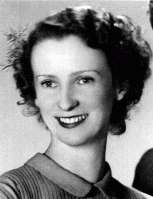
-
Bernburg T4 Facility
ArticleBernburg was the fifth of six centralized killing centers established by German authorities within the context of the Nazi “euthanasia,” or T4, program.
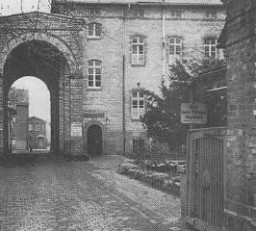
-
Martin Niemöller: "First they came for..."
ArticleLearn about the origins and legacy of Pastor Martin Niemöller's famous postwar words, “First they came for the socialists, and I did not speak out…”
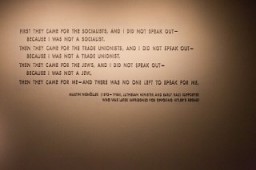
-
Dismissal letter from the Berlin transit authority
DocumentA letter written by the Berlin transit authority (Berliner Verkehrs Aktiengesellschaft) to Viktor Stern, informing him of his dismissal from his post with their agency as of September 20, 1933. This action was taken to comply with provisions of the Law for the Restoration of the Professional Civil Service. On April 7, the German government issued the Law for the Restoration of the Professional Civil Service (Gesetz zur Wiederherstellung des Berufsbeamtentums), which excluded Jews and political opponents…
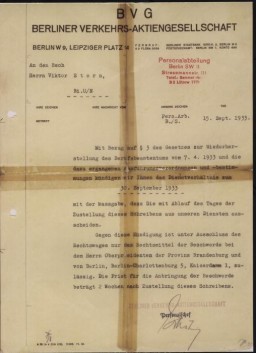
-
A chart detailing physical characteristics of a Romani (Gypsy) individual
DocumentA chart detailing physical characteristics of a Romani (Gypsy) individual, c. 1938. Dr. Robert Ritter and his team created extensive family trees and genealogical charts in order to identify, register, and classify all Romani people living in Nazi Germany. During the Nazi era, Dr. Robert Ritter was a leading authority on the racial classification of people pejoratively labeled “Zigeuner” (“Gypsies”). Ritter’s research was in a field called eugenics, or what the Nazis called “racial…
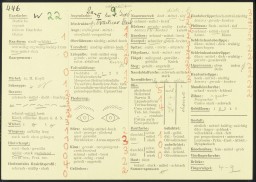
-
Germans bomb Coventry
FilmOn the night of November 14-15, 1940, almost 500 German bombers attacked the British industrial city of Coventry in central England. The bombers dropped 150,000 incendiary bombs and more than 500 tons of high explosives. The air raid destroyed much of the city center, including 12 armament factories and the historic Saint Michael's Cathedral. This footage shows scenes from the aftermath of the attack. The bombing of Coventry came to symbolize, to Britain, the ruthlessness of modern air warfare.
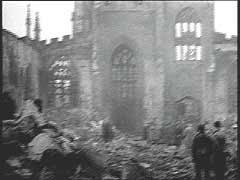
-
Wallace Witkowski describes harsh living conditions for non-Jews in Poland
Oral HistoryWallace and his family were Polish Catholics. His father was a chemical engineer and his mother a teacher. The Germans occupied Kielce in 1939. Wallace witnessed pogroms against Jews in 1942. Wallace was active in the anti-Nazi resistance, acting as a courier between partisan groups. In 1946, in liberated Poland, Wallace witnessed the Kielce pogrom. He was reunited with his father in the United States in 1949; other family members followed. The Communist regime in Poland, however, denied his only sister…
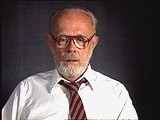
-
Agate (Agi) Rubin describes the role of interpersonal bonds in surviving the Auschwitz camp
Oral HistoryIn April 1944, after the German occupation of Hungary, Agi, her mother, six-year-old brother, and aunt were forced into the Munkacs ghetto. Before deportation to Auschwitz, Agi was forced to work in the ghetto's brick factory. At Auschwitz, Agi, then 14 years old, was chosen as part of a Sonderkommando. This forced-labor detachment had to sort the clothing and possessions of inmates and victims at Auschwitz. In January 1945, Agi and other prisoners were forced on a death march from Auschwitz. She was…
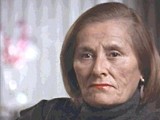
-
Herbert Oppenheimer describes activities of the Hitler Youth
Oral HistoryHerbert Oppenheimer was born on January 4, 1926, in Berlin, Germany. He lived with foster parents, who were Seventh-Day Adventists. While living with his foster parents, he had to join Hitler Youth along with everyone else in his class at school. During this time, he learned that he was Jewish. The school consequently expelled him from the Hitler Youth. All prospective members of the Hitler Youth had to be "Aryans." He had to leave his foster parents in April 1939, and lived in an orphanage run by the…
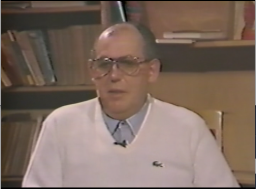
-
Elie Wiesel Timeline and World Events: From 1952
ArticleSurvivor Elie Wiesel devoted his life to educating the world about the Holocaust. Explore key events in the world and his life from 1952 until his death in 2016.
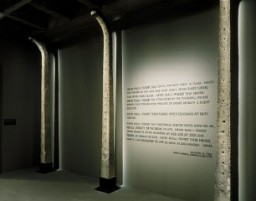
-
Supreme Court Decision on the Nuremberg Race Laws
ArticleLearn more about the 1936 German Supreme Court decision on the Nuremberg Race Laws.
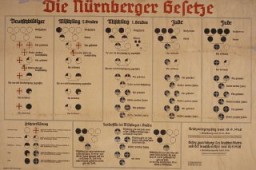
-
Erwin Rommel
ArticleErwin Rommel was commander of the German Afrika Korps in North Africa during WWII. Learn about Rommel's military career, death, and ongoing questions around his commitment to Nazism.
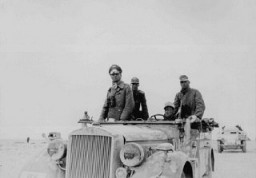
-
Eleanor Roosevelt
ArticleEleanor Roosevelt, longest serving First Lady in US history, used her social and political influence to intervene on behalf of refugees before and during WWII.
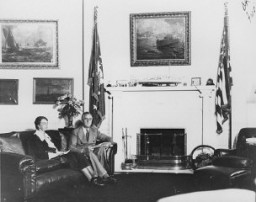
-
Article 48
ArticleArticle 48 allowed the German president to declare a state of emergency in times of national danger and effectively to rule as a dictator for short periods. Learn about its far-reaching effects.
